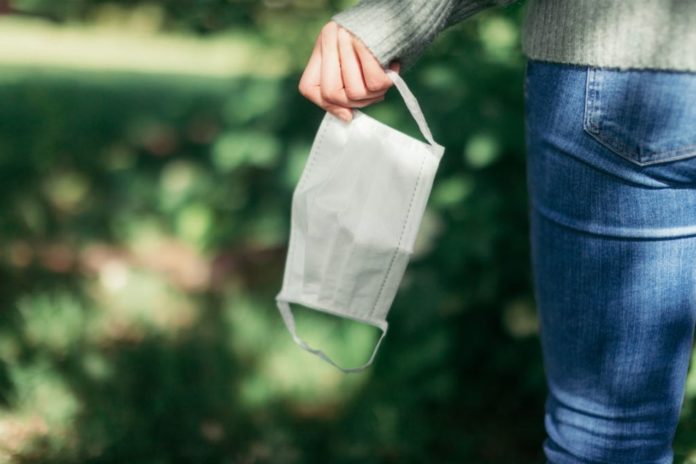Nanoengineers at the University of California, San Diego have presented new COVID-19 vaccine candidates based on plant viruses and bacteria.
The new COVID-19 vaccines also known as fridge-free vaccines are still in the development stage. In mice, The vaccine candidates induced a significant increase in the development of neutralizing antibodies against SARS-CoV-2. If the vaccinations are found to be safe and effective in humans, they could revolutionize global distribution efforts, particularly in rural areas and resource-poor groups.
“What’s exciting about our vaccine technology is that is thermally stable, so it could easily reach places where setting up ultra-low temperature freezers, or having trucks drive around with these freezers, is not going to be possible,” said the study author.
Two COVID-19 vaccine candidates were developed by the researchers. One is derived from a virus found in plants called cowpea mosaic virus. The other is derived from a bacterial virus known as Q beta.
Both vaccines were prepared according to the same recipe. The researchers grew millions of copies of the plant virus and bacteriophage in the form of ball-shaped nanoparticles using cowpea plants and E. coli bacteria. The researchers isolated these nanoparticles and then coated them with a small fragment of the SARS-CoV-2 spike protein. The completed products resemble infectious viruses and are therefore recognized by the immune system, but they are not contagious to animals or humans. The small bit of spike protein clinging to the surface is what triggers the immune system to mount an attack on the coronavirus.
The researchers highlight numerous advantages of developing vaccines utilizing plant viruses and bacteriophages. For one thing, they can be quite simple and affordable to manufacture on a wide scale.
Another significant advantage is the extraordinary stability of the plant virus and bacteriophage nanoparticles at high temperatures. As a result, vaccines can be stored and distributed without the requirement to maintain a constant temperature. Additionally, they can be subjected to heat-based fabrication techniques. These methods are being used to package the vaccines into polymer implants and microneedle patches. These procedures involve combining vaccine candidates with polymers and melting them together at temperatures near 100 degrees Celsius in an oven. The ability to mix the plant virus and bacteriophage nanoparticles directly with the polymers from the start simplifies and expedites the process of developing vaccine implants and patches.
COVID-19 vaccine candidates were delivered to mice in experiments through implants, microneedle patches, or a two-shot series. All three approaches resulted in substantial levels of neutralizing antibodies against SARS-CoV-2 in the blood.
The researchers discovered that these same antibodies were also neutralising the SARS virus.
It all comes down to the piece of the coronavirus spike protein that is attached to the surface of the nanoparticles. One of these pieces that the researchers chose, called an epitope, is almost identical between SARS-CoV-2 and the original SARS virus.
“The fact that neutralization is so profound with an epitope that’s so well conserved among another deadly coronavirus is remarkable,” said co-author.
“This gives us hope for a potential pan-coronavirus vaccine that could offer protection against future pandemics.”
Additionally, this epitope is unaffected by any of the SARS-CoV-2 mutations that have been described thus far. This is because this epitope originates from a portion of the spike protein that does not interact with cells directly. This is in contrast to the epitopes found in currently used COVID-19 vaccines, which are derived from the spike protein’s binding region. This is an area that has had a high number of mutations. Additionally, several of these modifications have increased the virus’s contagiousness.
According to the study’s first author, epitopes from a nonbinding area are less likely to suffer these alterations.
“Based on our sequence analyses, the epitope that we chose is highly conserved amongst the SARS-CoV-2 variants.”
This suggests that the new COVID-19 vaccines may be effective against the variants of concern, and testing to determine their efficacy against the Delta variant, for example, are presently underway.
Plug and play vaccine
Another aspect of this vaccine technology that excites the researchers is the adaptability it provides for developing new vaccinations.
“Even if this technology does not make an impact for COVID-19, it can be quickly adapted for the next threat, the next virus X,” said the study author.
Making these vaccines, the study authors explains, is as simple as growing plant virus or bacteriophage nanoparticles from plants or bacteria and then attaching a bit of the target virus, pathogen, or biomarker to the surface.
“We use the same nanoparticles, the same polymers, the same equipment, and the same chemistry to put everything together. The only variable really is the antigen that we stick to the surface,” said the study author.
The produced vaccines do not require refrigeration. They are available in the form of implants or microneedle patches. Alternatively, they can be supplied directly by shots in the traditional manner.
The vaccines are detailed in a paper published Sept. 7 in the Journal of the American Chemical Society.
Image Credit: Getty
